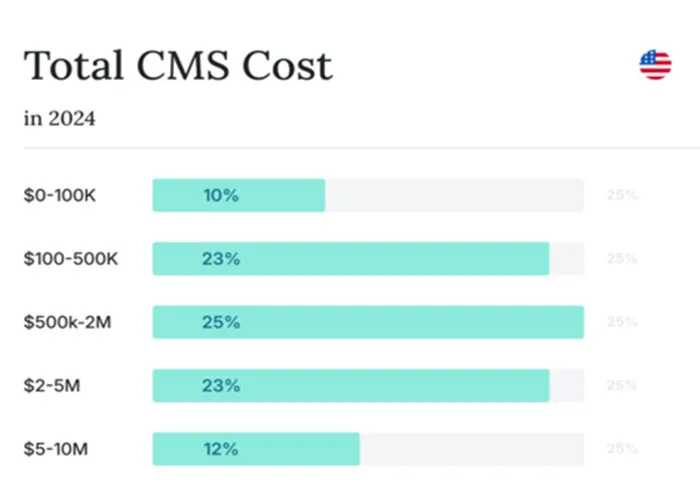WP Engine, a global leader in WordPress website solutions, has released a comprehensive new research report titled “The Total Cost of Your Company Website: A Data-Driven Guide for Digital Leaders.” The study, based on responses from over 1,700 digital decision-makers in the U.S., U.K., and Australia, reveals that organizations using WordPress achieve up to 44% lower total cost of ownership (TCO) compared to those relying on proprietary content management systems (CMS).
As 68% of businesses plan to increase their CMS budgets in 2025, the findings arrive at a critical time. Companies are grappling with tighter financial constraints, extended platform evaluation cycles, and heightened demands for ROI transparency. The WP Engine report sheds light on how digital leaders can optimize their web strategies by aligning infrastructure decisions with financial efficiency and long-term performance goals.
“Digital experiences have shifted from simple marketing touchpoints to vital business functions,” said Jason Teichman, Chief Operating Officer at WP Engine. “Unfortunately, many companies still underestimate the true costs tied to their CMS infrastructure. Our report helps digital teams make smarter, more cost-effective decisions based on real-world data.”
Key insights from the report include:
$2.6 million/year: This is the average CMS cost for medium-to-large and enterprise businesses, factoring in licensing, development, hosting, and third-party tools.
Up to 44% savings: Organizations using WordPress reduce CMS-related expenses significantly compared to proprietary platforms.
11-month average evaluation cycle: Large enterprises are taking longer to evaluate CMS options, with the U.K. averaging nearly 12 months.
Rise of hybrid strategies: Many companies are adopting a multi-CMS model, with WordPress as the leading secondary platform due to its flexibility and affordability.
Regional priorities differ: Security concerns top the list in the U.S. and Australia, while U.K. companies are more focused on ongoing maintenance and management challenges.
The study also highlights how open-source tools like WordPress are becoming central to enterprise strategies. These platforms offer agile, scalable ecosystems that support complex digital environments without the heavy costs of proprietary solutions.
“This guide is a strategic roadmap for understanding how digital infrastructure impacts total cost and performance,” added Teichman. “WP Engine is proud to support organizations with powerful, secure, and open-source solutions that deliver both value and innovation.”
Related Topics
- WordPress Contributor Reduction Leads to Development Slowdown
- How to Find Wordpress Admin URL from Database
- Fake WordPress Security Plugin Grants Attackers Remote Access

